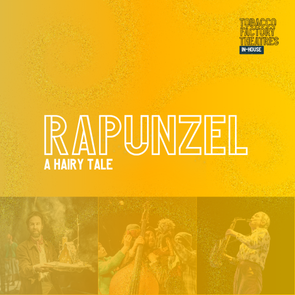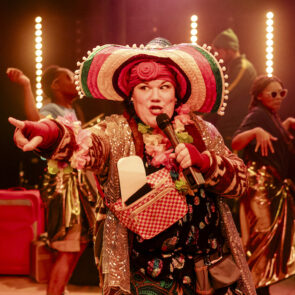We caught up with Anna Girvan, director of Our Country’s Good, as she prepares to lead the Factory Company in Timberlake Wertenbaker’s masterpiece this spring.
How does it feel to be directing your first production for Tobacco Factory Theatres?
It’s feels pretty scary to be honest! Tobacco Factory Theatres, and the building as a whole, was a big part of my life during the 6 years I lived in Bristol. I moved to Bristol from Newcastle in 2009 and I vividly remember my first night here, spent at Tobacco Factory Theatres seeing Mark Watson’s stand up show. Weeks later I got a job working in the Cafe Bar, met my partner (who still seems to have stuck around!) and then eventually went to work as a Duty Manager upstairs at the theatre.
The space itself excites me every time I walk into it. The first production I saw here was Andrew Hilton’s Antony and Cleopatra. Andrew is a master at negotiating the space and a play which I always felt distant from became immediate and accessible. Since then I have seen so many tremendous shows transform the Factory Theatre space and I feel honoured and thrilled to make my debut as part of the new Factory Company season.
What draws you to Our Country’s Good?
Our Country’s Good is a play which I have only read. I remember seeing production shots of the original and subsequent productions and thinking that it looked pretty stuffy and traditional. Reading the text as a teenager, I don’t think I quite grasped the humour and pathos in the play and it was only reading it again, having worked with community theatre groups, that I really sparked a passion for the text. I have seen first hand the power that theatre can have to reform communities and create an outlet for creativity which so many institutions (schools included) think of as a luxury rather than a vital part of education. I’m drawn not only to Wertenbaker’s masterful ability to comment on the universal arguments on crime and punishment in a humorous and human way, but also her exploration of theatre, philosophy and anthropology.
What are the challenges of staging Our Country’s Good in the round?
The challenges are making every audience member feel like they have the best seat in the house. I love working in the round as it feels like a warm hug and it exposes the cracks in every part of your direction. I don’t see it so much as a challenge but a provocation to make all areas of the storytelling four dimensional. One audience member is going to catch a glance or an expression that maybe no one else will which could inform their whole relationship with that character, and that excites me.
How important is historical research when tackling this production?
Timberlake Wertenbaker and Max Stafford Clark did so much research when bringing this show to audiences for the first time, so there is a plethora of reading material to draw from. I think it is vital to have a broad understanding of the context of the play and its first production but also to research the world we live in today and why this play still feels relevant. It feels important to me that research isn’t about just books but people as well, so our company have visited inmates at a prison to talk about their experiences of theatre within a correctional institution. I’m hoping that by making these connections and sharing our stories the actors will have a rich and truthful contemporary experience to draw upon.
What are the main themes you want to pull out of the play and how do they relate to today?
There are many themes in Our Country’s Good to draw from, such as retribution and rehabilitation, the issues surrounding crime and punishment and colonialism. But I am particularly interested in how the play refers to the power of theatre. I want to explore how theatre is used and perceived by a modern audience as a tool for change within institutions, or as an entertaining luxury for the elite, or a hobby/extra curricular activity, as our education ministers seem to consider it. I have had experience of working with community theatre groups and have seen the transformative effect of giving them a voice and platform to let their story be told. But Our Country’s Good is less about empowering the convicts to express themselves and more about them learning ethics, elocution and eloquence. Theatre is a means of escape for these trapped convicts and it is going to be interesting exploring the question of ‘who or what is theatre for?’
Who is your favourite character and why?
I don’t think that I have a favourite character. What I love about this play is that Wertenbaker has written a true ensemble piece. Each character feels like they have a rich life off stage, which by the end of the play we wish we knew more about. They were all based on real people and I think that this detail means that these characters become more than just archetypes or vessels for the story. They remind us that these lives were lived and continue to be lived by service users in our prison system.
What can audiences expect from this production?
Hopefully a non-traditional approach to the staging of this play. Our designer, Anna Reid, has created a terrific canvas for the actors to play with and explore. I hope that those who know the play already and/or have seen productions of Our Country’s Good previously will hear and see the text in new ways and, for those new to the play, it will be an exciting introduction to this timeless, seminal work.
Anna Girvan directs Our Country’s Good at Tobacco Factory Theatres from Wed 17 April – Sat 11 May. Visit the main show page to book.
Posted on 25 March 2019



